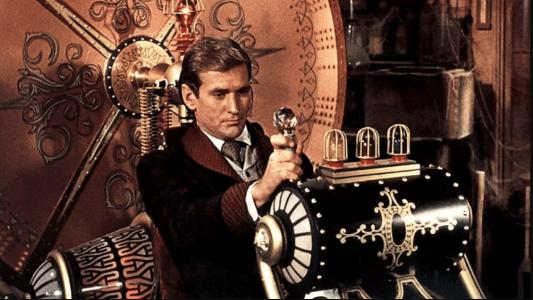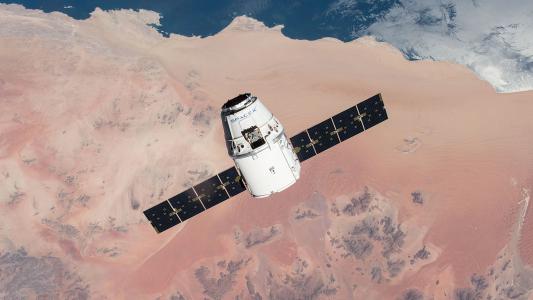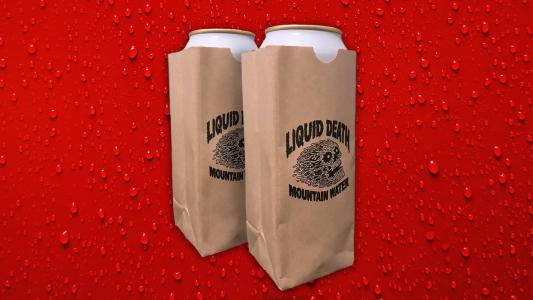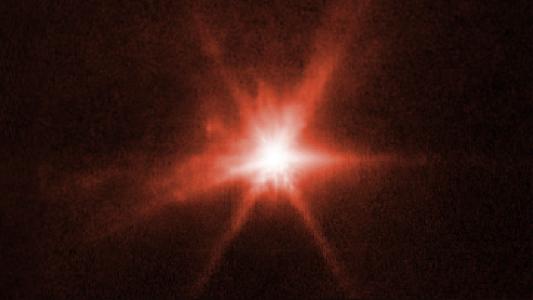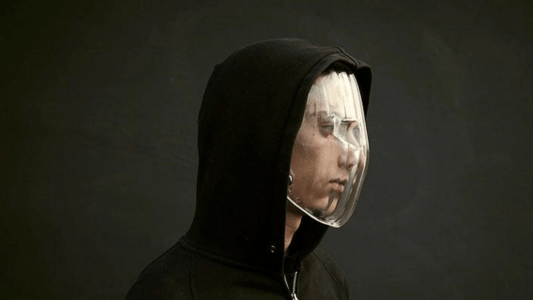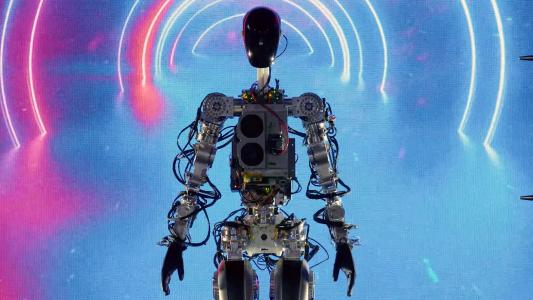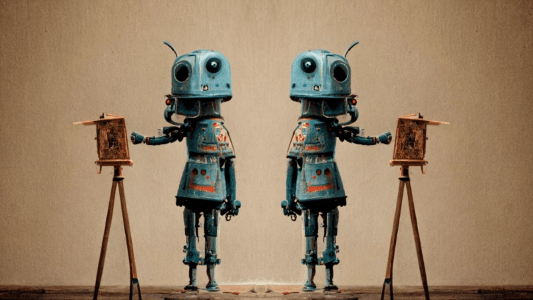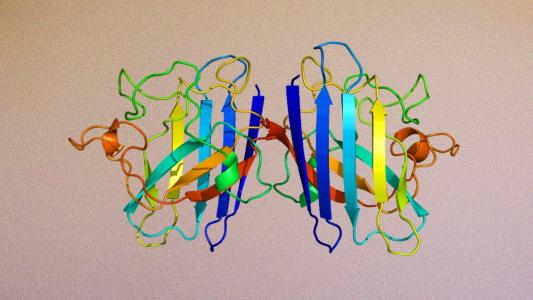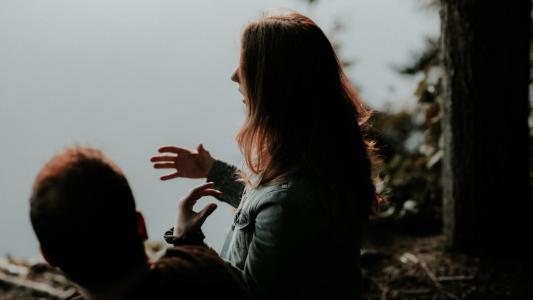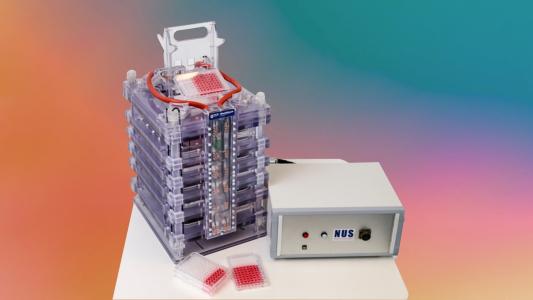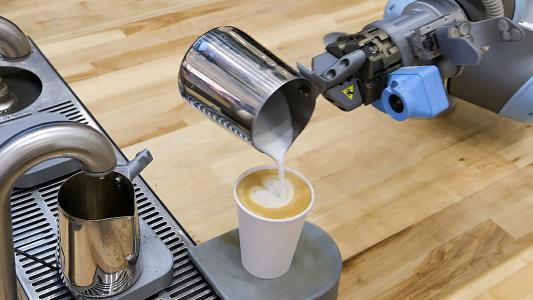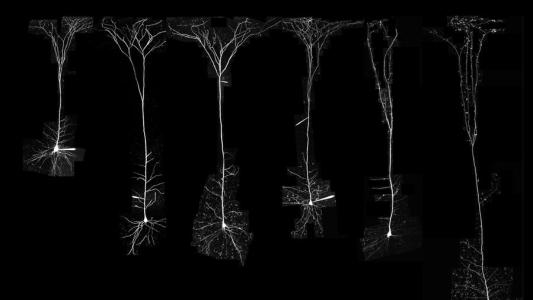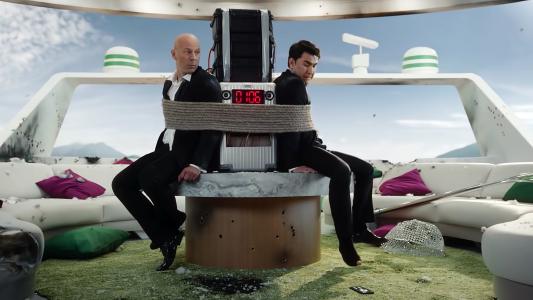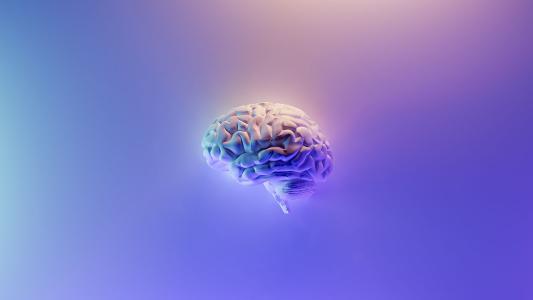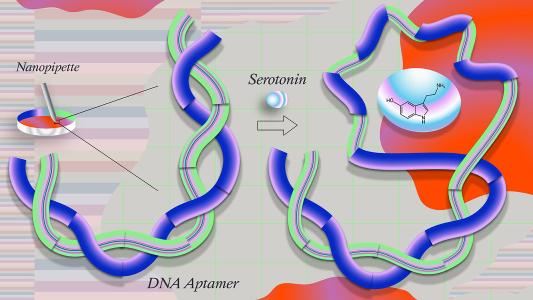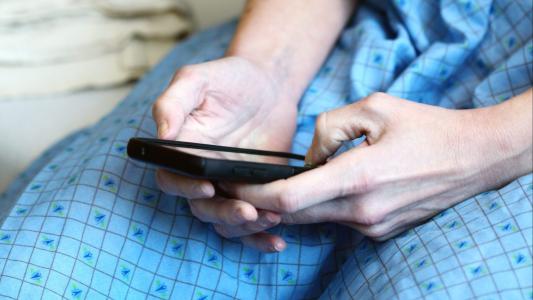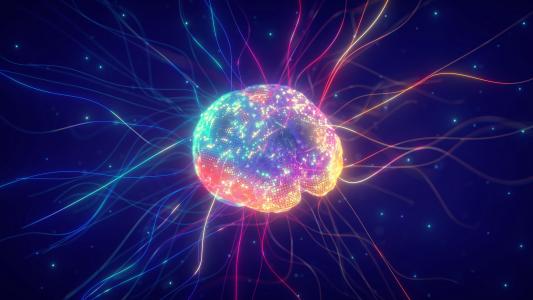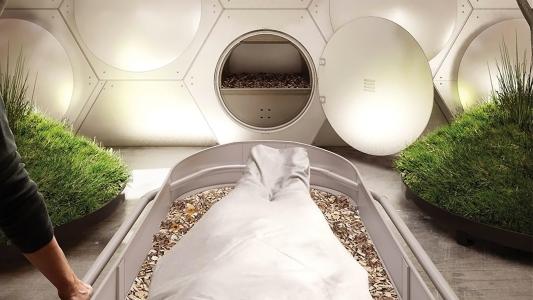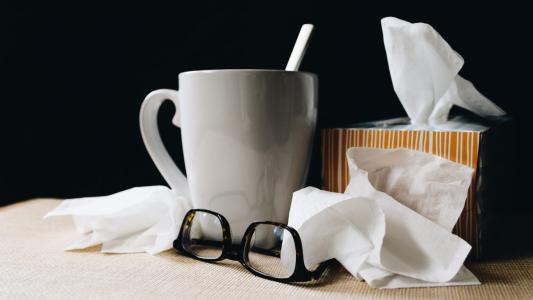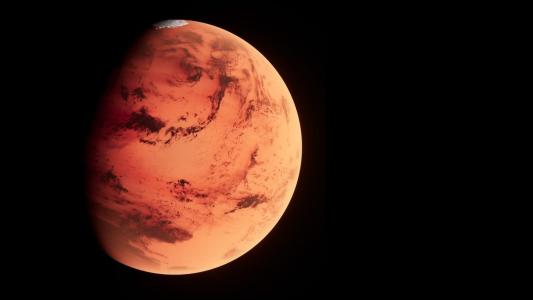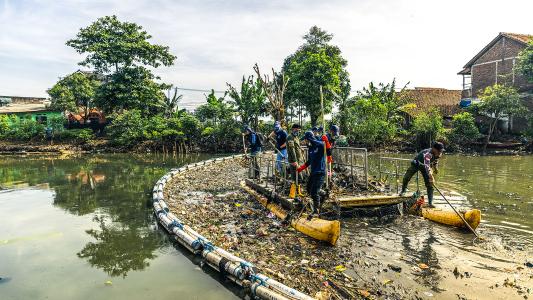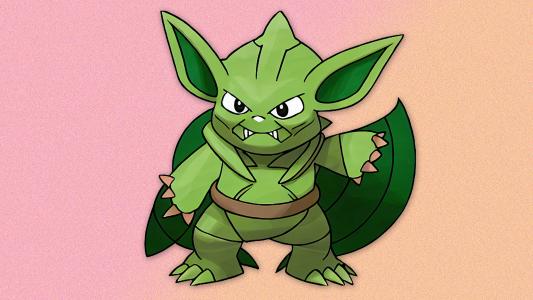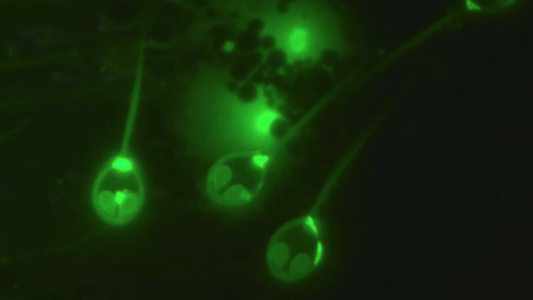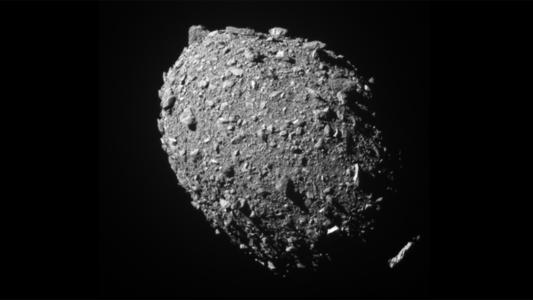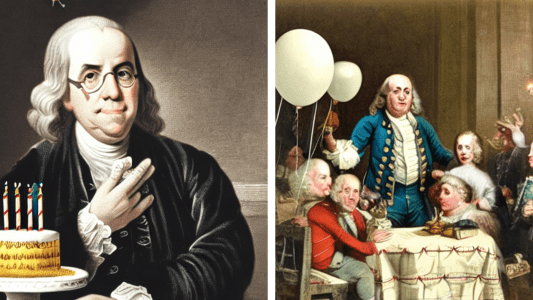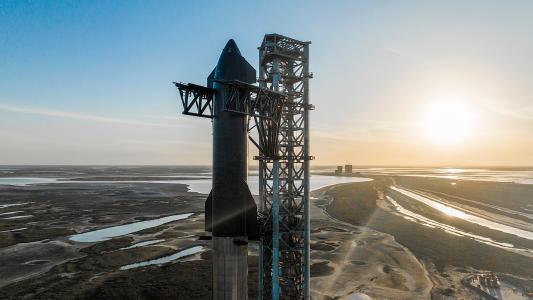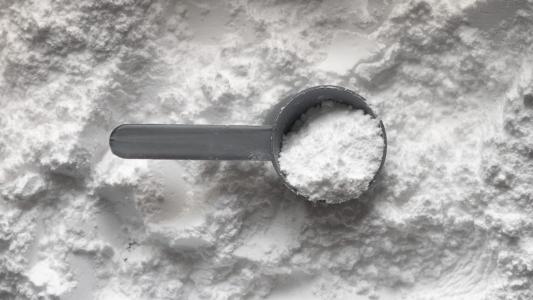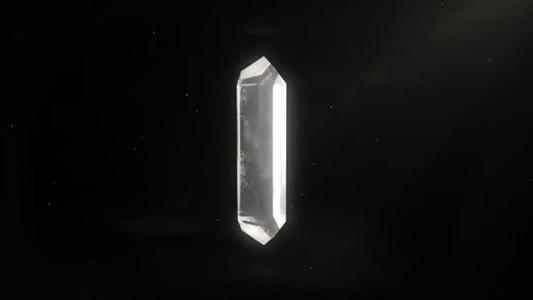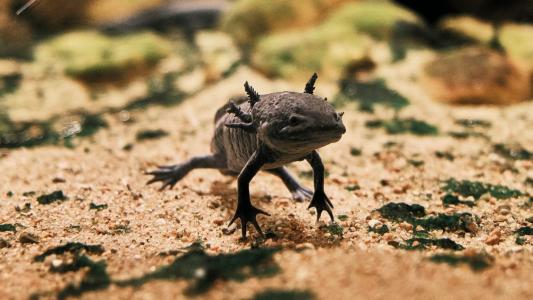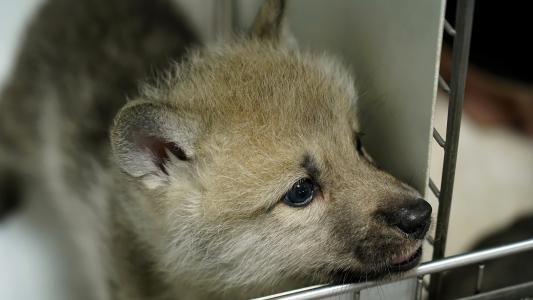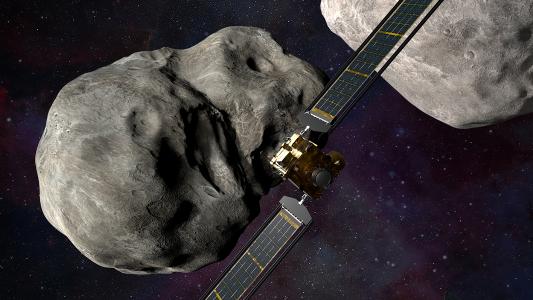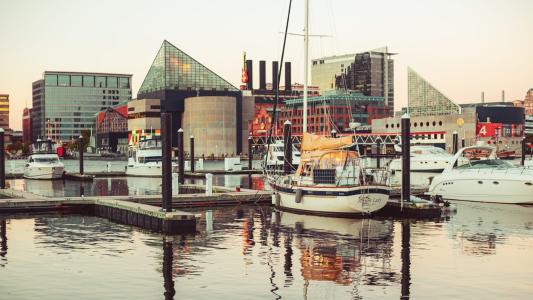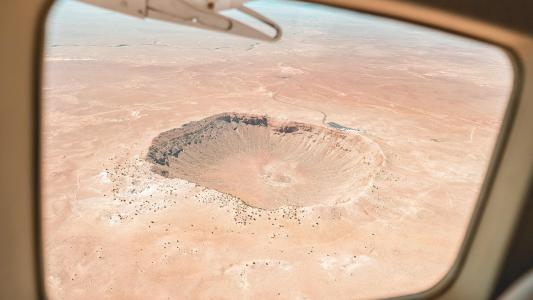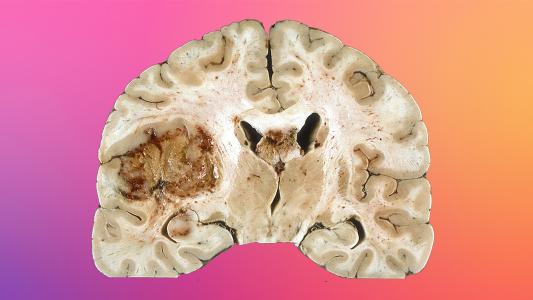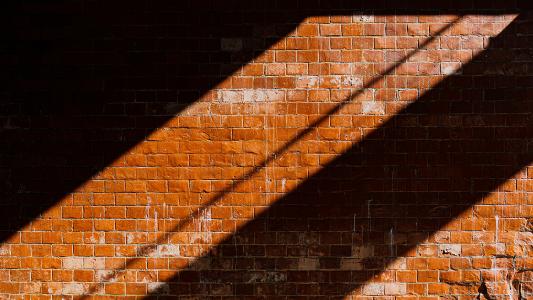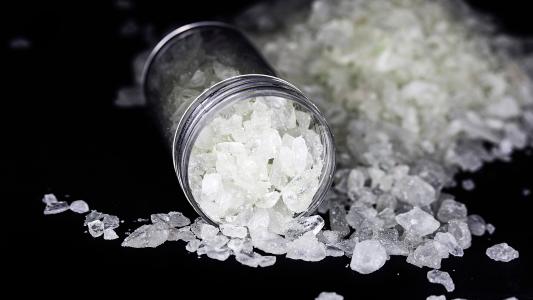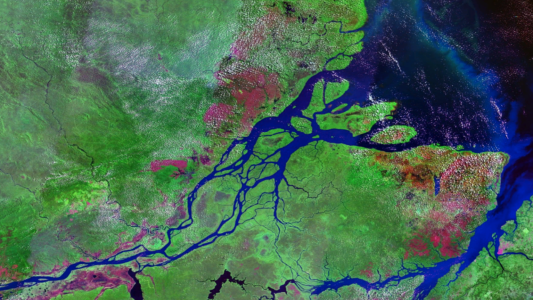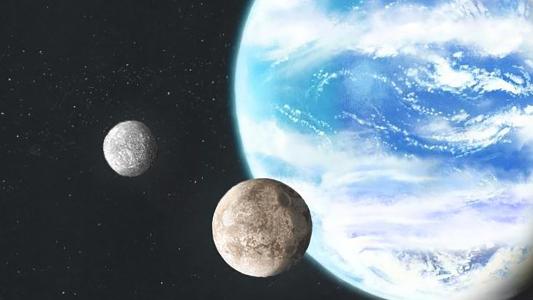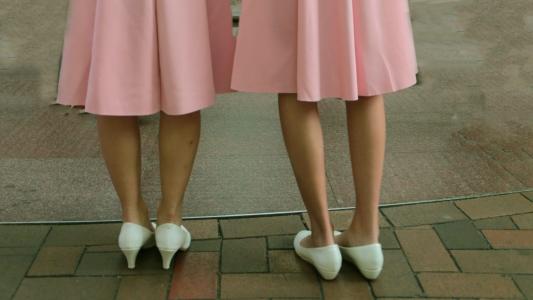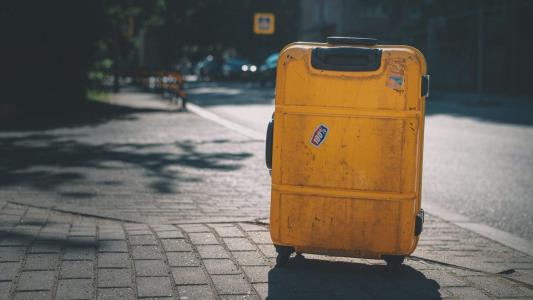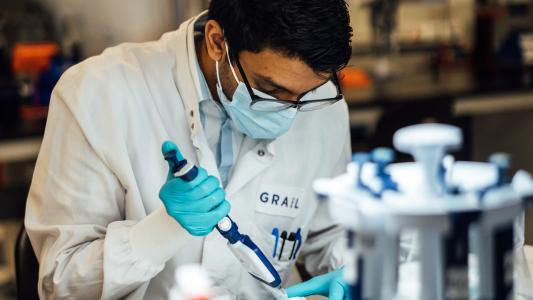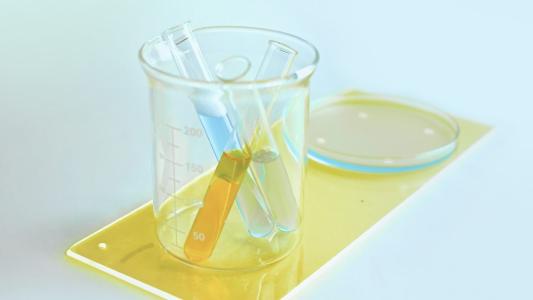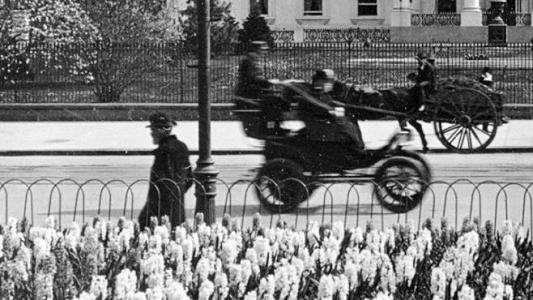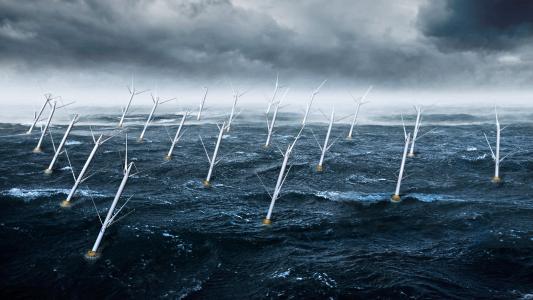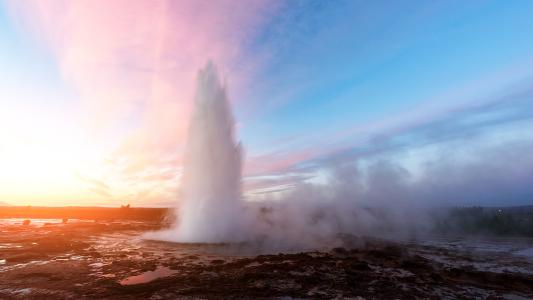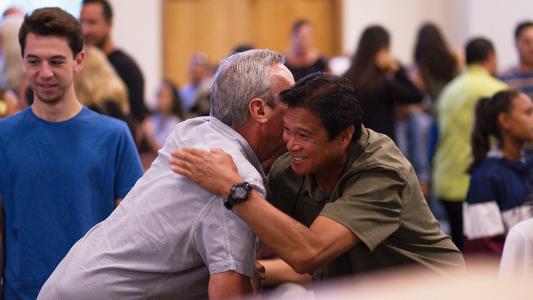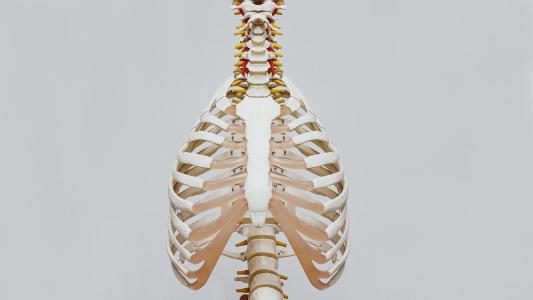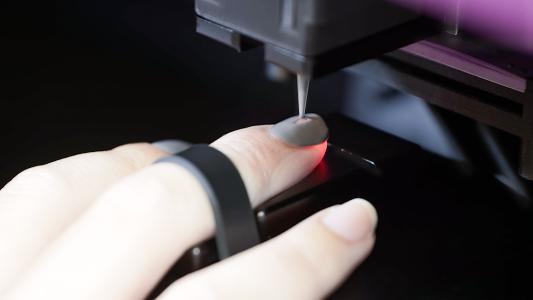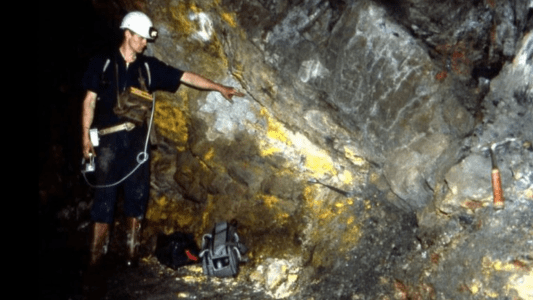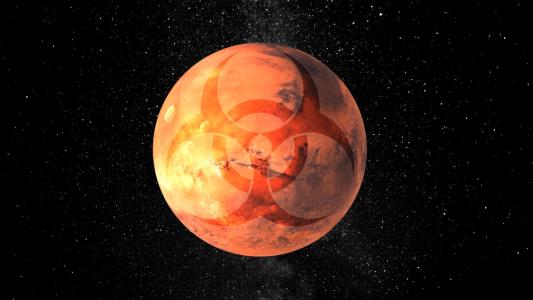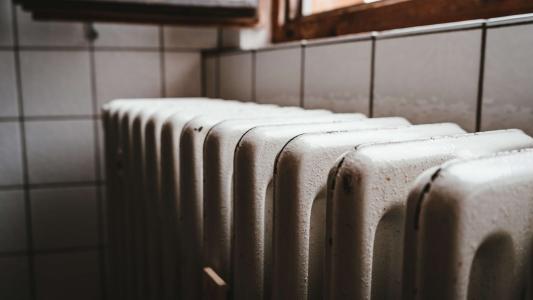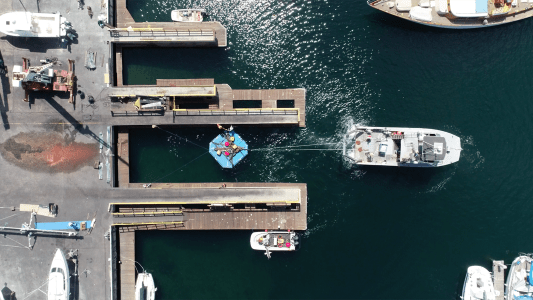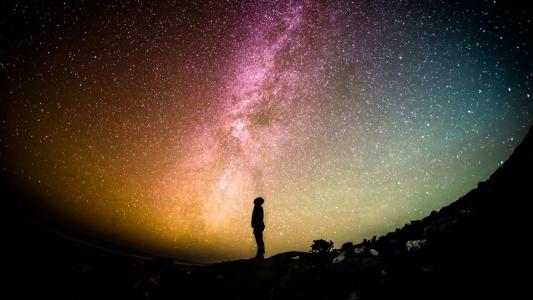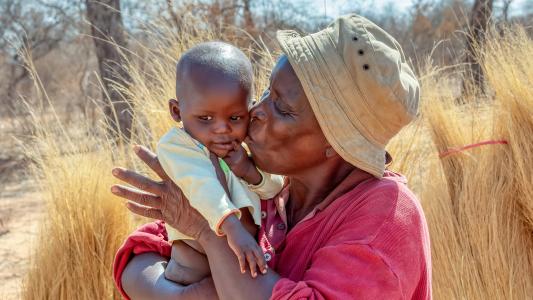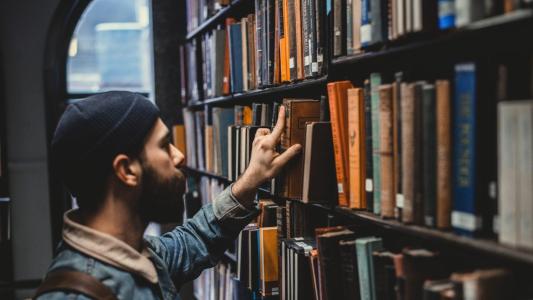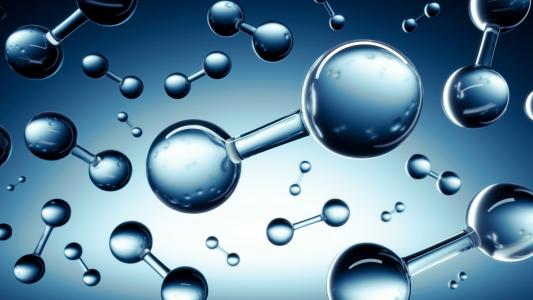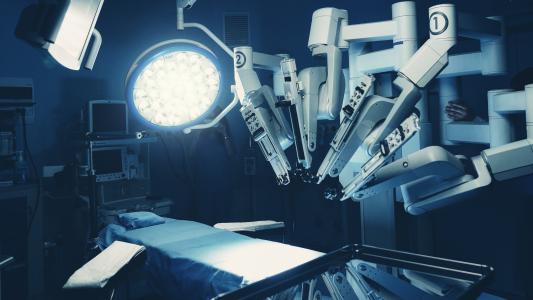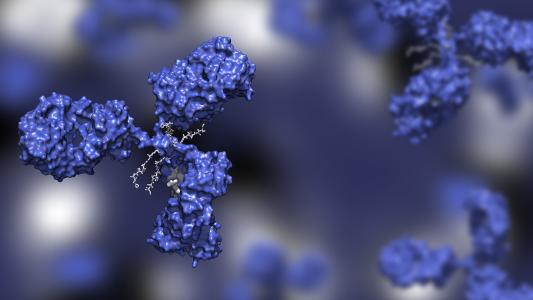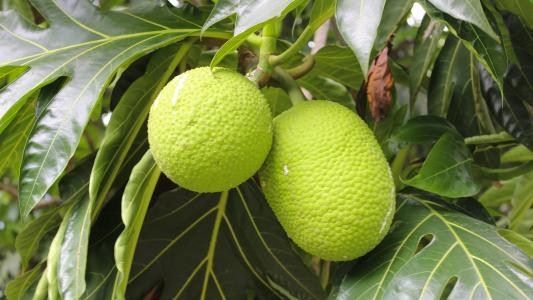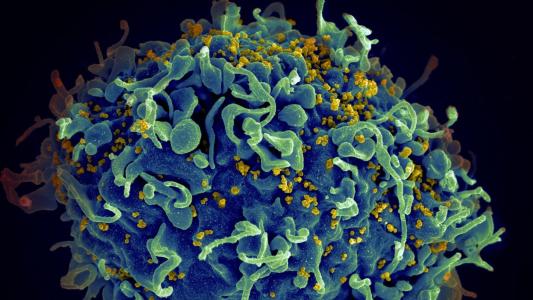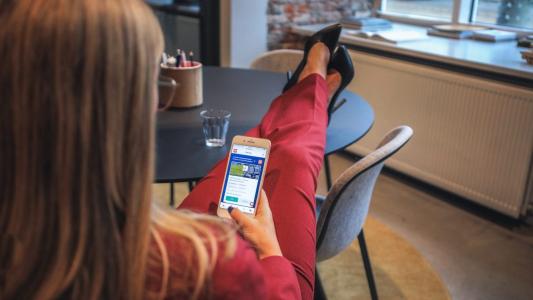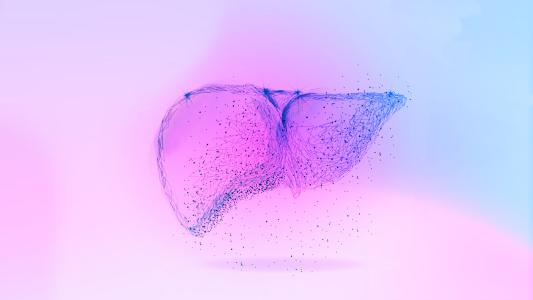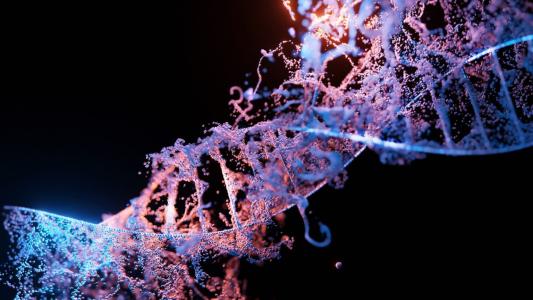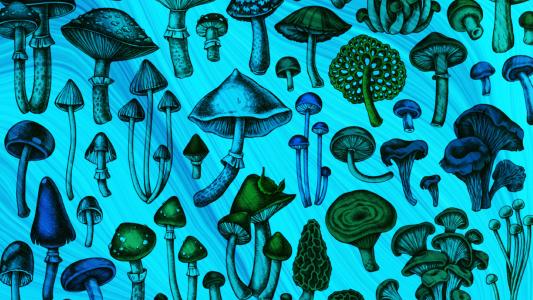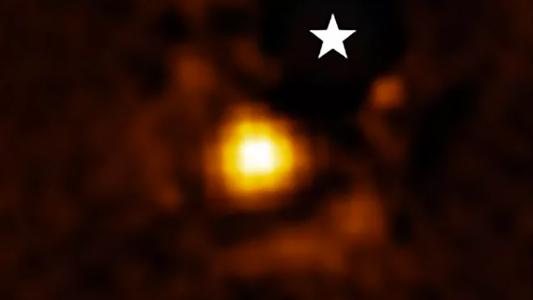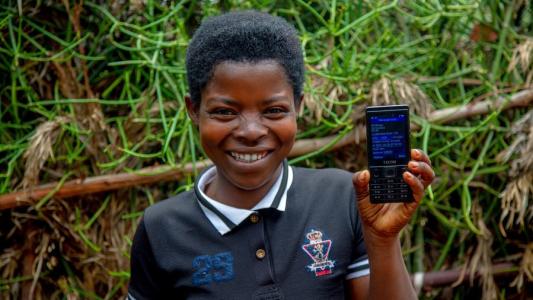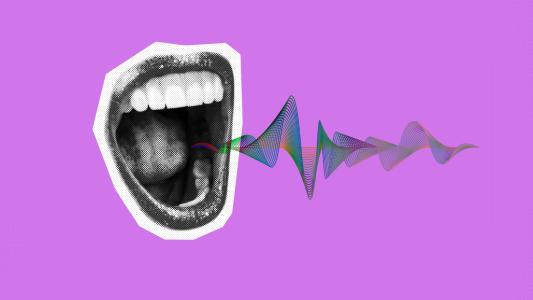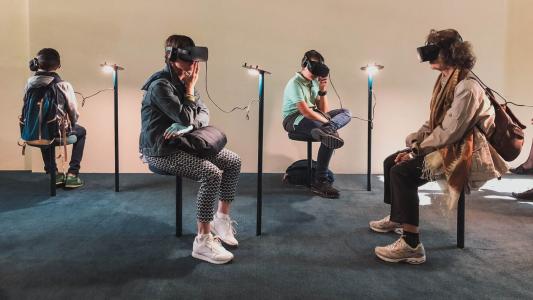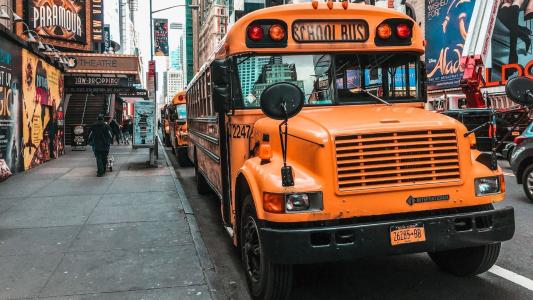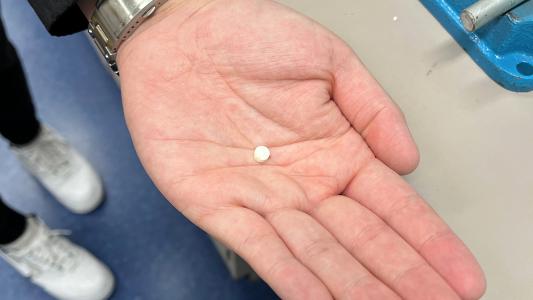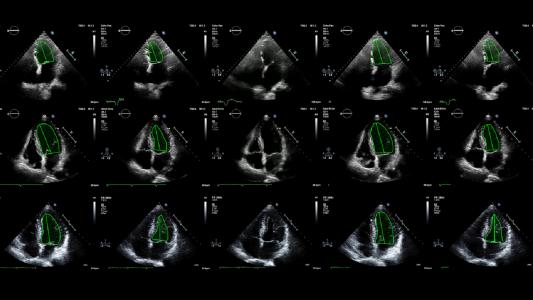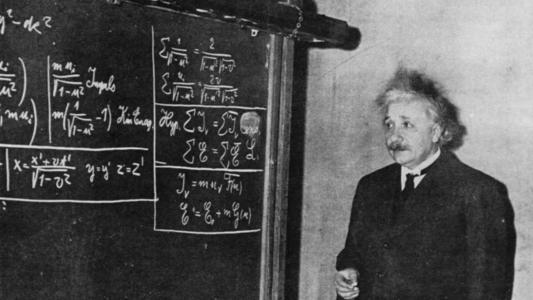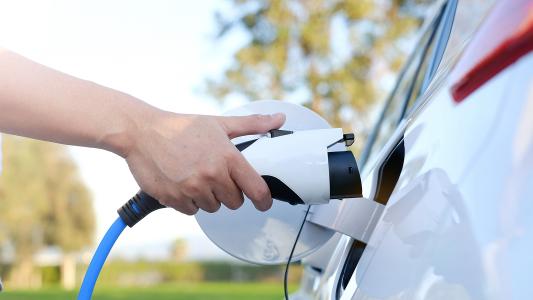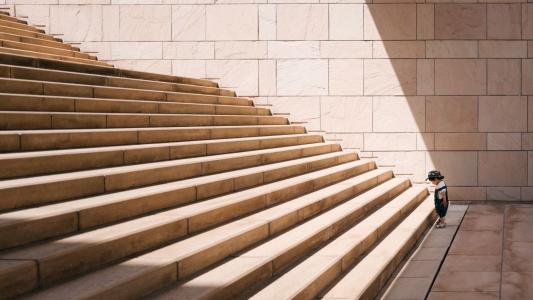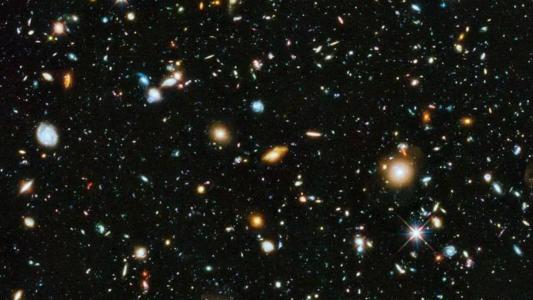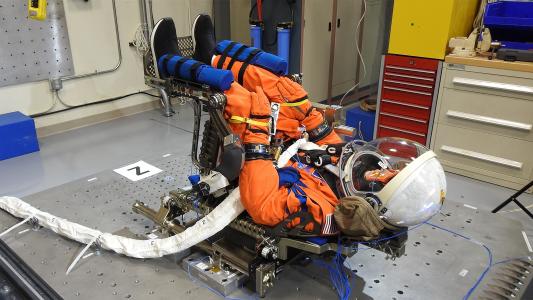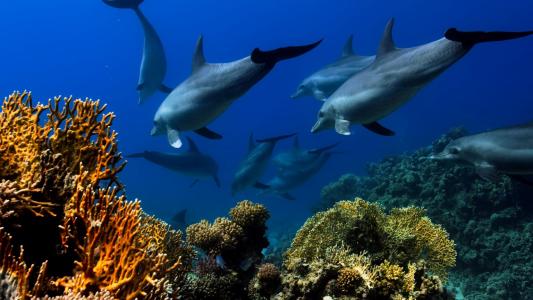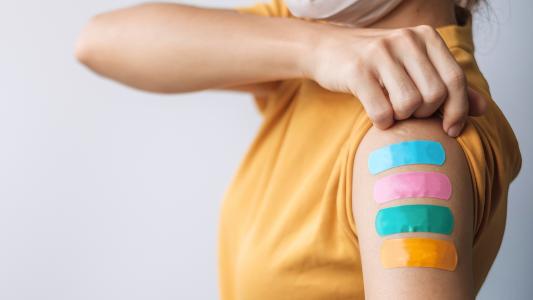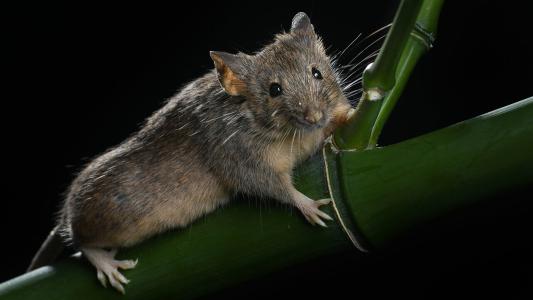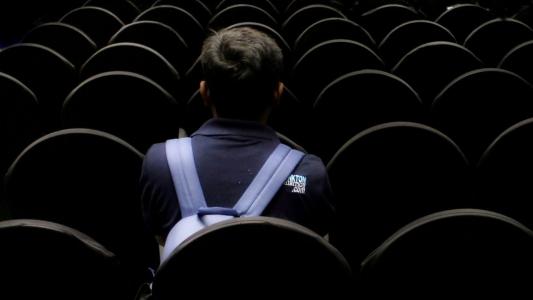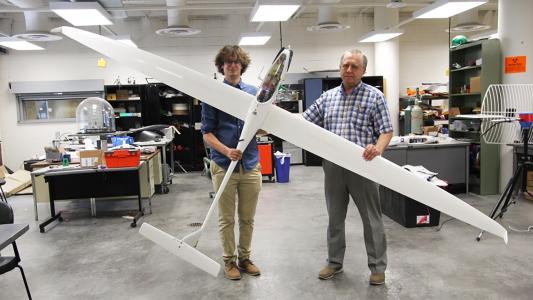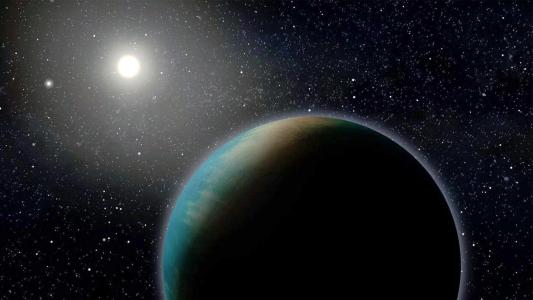Paradox-free time travel is “logically” possible, say physicists
An undergraduate and his supervisor ran the numbers and found paradox-free time travel to be mathematically consistent.
SpaceX wants to save Hubble. NASA may be on board.
NASA and SpaceX may use a Dragon spacecraft to boost the Hubble Space Telescope into a higher, life-saving orbit.
You could soon get a piece of $700 million Liquid Death
Canned water startup Liquid Death, now valued at $700 million, is considering going public in the next two years.
Webb, Hubble capture spacecraft slamming into asteroid
DART collision images captured by NASA's Hubble and James Webb space telescopes show what happens when a spacecraft slams into an asteroid.
Inventions that are fighting the rise of facial recognition technology
Combating the rise of facial-recognition technology, designers have created clothing and accessories to help to conceal people's identities.
Elon Musk demos humanoid robot, which will cost less than $20K
CEO Elon Musk unveiled two prototypes of the humanoid Tesla robot, expected to cost less than $20,000, at his company’s second annual AI Day.
I used generative AI to create pictures of painting robots, but I’m not the artist — humanity is
Generative AI systems are incredible and hugely important, but they are not creative. In fact, they’re not even intelligent.
Scientists claim “never before” seen results in ALS clinical trial
The ability of tofersen, a gene-based treatment for ALS, to improve symptoms is being hailed as a “treatment milestone.”
If you want people to like you, try talking more, not less
People tend to think they should speak less than half the time to be likable but more than half the time to be interesting.
The key to cheaper lab-grown meat? Magnets.
A new technique for making lab-grown meat uses magnets to eliminate the need for fetal bovine serum, an expensive, controversial substance.
Watch a robot barista create latte art
New funding will allow Seattle-based startup Artly Coffee to bring its robot barista to more US locations.
Study finds a striking difference between neurons of humans and other mammals
Researchers identified a “building plan” that holds true for every species they looked at — except for humans.
Bruce Willis sells his likeness for a deepfake ad
Retired actor Bruce Willis had a "digital twin" made so that his likeness could be inserted into a new project using deepfake tech.
New Alzheimer’s drug slows mental decline by 27% in clinical trial
Eisai and Biogen are reporting that their new Alzheimer’s antibody slowed cognitive decline by 27% in a global trial.
Shape-shifting DNA is helping researchers decode the human brain
Researcher Nako Nakatsuka has turned to DNA to tackle an important challenge: how do we measure chemicals in the brain?
What’s causing the alarming rise in cancer for adults under 50?
A new review finds that 14 different cancers, including eight related to the digestive system, are increasing in people under age 50.
Brain-zapping tech improves memory by more than 50%
A brain-zapping "memory prosthesis" funded by DARPA improved trial participants' ability to retain new information by more than 50%.
Human composting is now legal in five states
California is now the fifth state to legalize human composting, a more environmentally friendly alternative to burial or cremation.
I’ve had COVID and am constantly getting colds. Did COVID harm my immune system?
Does COVID somehow weaken the immune system to make us more prone to other infectious diseases? Here's what scientists know.
“Up to 2.4 million new apartments” legalized by bipartisan California legislation
Millions of new apartments in commercial areas and near transit have been legalized by new California laws just signed by Governor Gavin Newsom.
A neural network discovered Copernicus’ heliocentricity on its own
Scientists trained a neural network to predict the movements of Mars and the Sun, which placed the Sun at the center of our solar system.
From CDs to NFTs: Starbucks’ surprising history of embracing new tech
Starbucks’ newly-announced blockchain platform is just the latest example of the chain’s early embracement of tech.
This floating fence can catch plastic waste before it hits the sea
The majority of oceanic plastic waste comes from rivers and coasts. Floating fences may help stop it at the source.
This Stable Diffusion mod will turn you into a Pokémon
Stable Diffusion, an open-source text-to-image AI, has been modified to generate Pokémon-like characters from simple text prompts.
Scientists discover animal that doesn’t need oxygen to live
The parasite infects salmon and lives within the fish muscle, though scientists aren't quite sure how it breaks down nutrients for survival.
Starlink turns on coverage over Iran to bypass censorship
Elon Musk's Starlink satellite internet is active over Iran, but the terminals to access it must make it inside the country.
For the first time, scientists can switch cancer-fighting cells on and off
While it can be effective, CAR-T cancer therapy can also cause dangerous side effects. But a new on/off switch could change that.
Watch NASA’s DART spacecraft slam into an asteroid
NASA has slammed its DART spacecraft into an asteroid in the world’s first demonstration of planetary defense technology.
How do DALL-E, Midjourney, Stable Diffusion, and other forms of generative AI work?
DALL-E and other types of generative AI can produce images that look like photographs, paintings, or drawings that were created by humans.
Elon Musk: Starship rocket “highly likely” to fly in November
SpaceX’s massive Starship rocket is “highly likely” to complete its first orbital test flight in November 2022, according to CEO Elon Musk.
Creatine, a popular exercise supplement, might help treat depression
Creatine shows promise as a treatment for depression, boosting the effects of SSRIs and potentially working as a standalone medication.
China has discovered a brand new moon mineral
A new moon mineral discovered by China contains helium-3, an element that could one day fuel nuclear fusion reactors on Earth.
Axolotls can regenerate their brains
Axolotls are a model organism researchers use to study a variety of topics in biology because of their regenerative abilities.
World’s first cloned arctic wolf is now 100 days old
After two years of effort, China's Sinogene Biotechnology has created the world’s first cloned arctic wolf.
NASA’s DART spacecraft is about to smash into an asteroid
The DART spacecraft is now close enough to image the asteroid system it plans to slam into as part of NASA’s planetary defense efforts.
This start-up is recycling abandoned wooden homes in Baltimore
The Baltimore Wood Project salvages wood from buildings to repurpose and resell locally to create a circular economy.
Forensic techniques help discover charred remains of ancient meteor impacts
Unique clues in charcoal can reveal hidden impact craters, helping insure we’re better prepared in the future.
Air Canada orders 30 electric-hybrid aircraft for takeoff in 2028
Flag carrier Air Canada has announced plans to have electric-hybrid planes on regional and commuter routes by 2028.
New treatment “starves” aggressive brain tumors in mice
A treatment that “starved” aggressive glioblastoma tumors in the brains of mice suggests a way to finally fight the deadly cancer in humans.
Are near-death experiences just psychedelic trips?
One possible explanation of near death experiences is that our brains are flooded with a hallucinogenic, DMT.
Brick batteries may be a key to decarbonizing heavy industry
By storing renewable energy as heat in brick “batteries,” Rondo Energy believes they can decarbonize heavy industry.
Meth addiction treatments are finally on the horizon
New antibody and drug therapies may soon help treat meth patients, who currently have no pharmacological interventions.
Laser scans reveal ancient cities hidden in the Amazon river basin
Lidar technology reveals the surprisingly complex infrastructure and urban planning that united Casarabe settlements.
Continents may be the key to whether exoplanets can harbor life
New simulations of continent distribution could help astronomers assess whether newly-discovered exoplanets may be habitable.
Identical twins were raised in different countries. Here’s how they differ today.
After being separated as toddlers, two identical twins were raised apart in the US and South Korea.
An old anti-psychotic offers a new way to treat chronic pain
Researchers have found that an old anti-psychotic drug may have implications for chronic pain and cancer.
When remains are found in a suitcase, forensics can learn a lot from the insects trapped within
The investigation of human remains in a suitcase can often represent a Pandora’s box, full of complicated problems.
Blood test can find dozens of types of cancer, with few false positives
Grail’s Galleri multi-cancer blood test found multiple cancers in a study of over 6,000 patients.
ARPA-H: High-risk, high-reward health research is the mandate of new, billion-dollar US agency
A new multibillion-dollar federal agency was created with a goal of supporting “the next generation of moonshots for health.”
The surprising history of how electric vehicles have played the long game and won
The electric vehicle’s environmental credentials might give them a final push to win the long game over traditional cars.
This startup wants to build a radically powerful new kind of wind turbine
Norwegian startup World Wide Wind wants to build offshore wind turbines based on a completely different design from traditional models.
This rock-bending tech may change clean energy
A technology that stores energy underground could make enhanced geothermal systems more cost competitive.
Americans are becoming more likely to cooperate with strangers, not less
Americans are more likely to cooperate with strangers today than they were in the 1950s, according to the American Psychological Association.
Long COVID: Self-targeted immune attacks may lurk behind it
Researchers are working to get a more complete understanding of the cells and antibodies behind long COVID.
San Francisco decriminalizes plant-based psychedelics
San Francisco joins Oakland, Santa Cruz, DC, and Denver in decriminalizing some psychedelics.
Target is now offering the world’s first “robot manicure”
A robot that uses AI and 3D cameras to paint fingernails is now giving Target customers 10-minute manicures for just $8.
1.7 billion years ago, Earth had a natural nuclear reactor
Seventeen natural sites possessing ancient nuclear reactions have now been found: evidence of Earth's first nuclear reactor.
How NASA is planning to prevent a Martian plague
When Mars samples arrive, they may carry more than knowledge. To offset the chance of a Martian pandemic, NASA is learning to contain a Red Planet plague.
New wireless charging works from nearly 100 feet away
A compact wireless charging system uses harmless infrared light to power devices from nearly 100 feet away.
Heat pumps can cut your energy costs by up to 90%
Heat pumps are becoming all the rage around a world that has to slash carbon emissions rapidly while cutting energy costs.
Wave energy generator passes 10-month test at sea
A wave energy generator has completed a ten month open ocean trial.
This logarithmic view of the Universe will blow your mind
From here to the limits of what we can see, here's a breathtaking illustrated logarithmic view of the Universe.
Breakthrough drug could save hundreds of thousands of children’s lives
A booster dose of the University of Oxford’s malaria vaccine demonstrated up to 80% efficacy in children over a year of follow-up.
How to be happy: Aristotle’s 11 guidelines for a good life
In his Nicomachean Ethics, Aristotle proposed that humans are social, rational animals who seek to “live well.”
New solar device can pull hydrogen straight from the air
Researchers have created a solar-powered device that can pull water from the air to create hydrogen.
Robotic surgery is a game changer for minimally invasive surgery
In partnership with Intuitive
More and more surgeons are using robotic surgical systems. Here’s why.
Newly discovered antibody neutralizes all variants of the coronavirus
Using modified mouse models originally designed for HIV, researchers have discovered an antibody that stops all known strains of COVID-19.
This strange fruit could feed the world during climate change
Ensuring food security over the coming century will be a major challenge. A new study suggests that breadfruit may be the answer.
At long last, we might have an HIV vaccine
Due to HIV-1's extraordinary diversity, a vaccine needs to induce antibodies that can target many different strains.
Procrastinating is linked to health and career problems – but here’s how you can stop
In the long run, procrastination isn’t an effective way of managing emotions and causes health and work setbacks.
First-of-its-kind trial will attempt to grow mini livers in people
A new treatment that could turn a single donor liver into “mini livers” capable of saving 75 or more lives is heading into human trials.
Woman with rare gene mutations feels no pain, anxiety
A woman in Scotland was found to feel virtually no pain and report zero trace of any anxiety or depression.
SpaceX’s high-speed internet service is heading to sea
SpaceX’s Starlink Maritime internet service will soon be available to passengers on all Royal Caribbean Group cruise ships.
What are wormholes? An astrophysicist explains
A wormhole is like a tunnel between two distant points in our universe that cuts the travel time from one point to the other.
Microdosing’s benefits may be powered by belief
A small, double-blind, placebo-controlled study has found evidence that expectations may be behind microdosing’s beneficial effects.
NASA’s James Webb takes its first direct image of an exoplanet
NASA’s James Webb Space Telescope (JWST) has directly observed an exoplanet for the first time — ushering in a new era of exoplanet research
Fighting poverty with direct cash payments
GiveDirectly has delivered over $500 million in cash to impoverished people, letting recipients decide how best to meet their needs.
Meta can (kinda) guess what you’ve heard via your brain waves
Meta has created an AI that can tell what you’re hearing based on non-invasive brain scan measurements.
Six benefits that the metaverse offers to colleges and universities
Colleges and universities are keen to jump on the metaverse bandwagon, even before knowing what the metaverse really is.
Electric school buses are taking students back to school
Can electric school busses bring cleaner air and lower maintenance costs to school districts across the country?
Shoe wearable could help Parkinson’s patients avoid falling
Data-collecting sensors in shoes can predict a Parkinson’s patient’s fall risk almost as accurately as standard walking tests.
Insulin pills could end the need for painful injections
Insulin pills designed to be dissolved in the mouth appear to overcome a major hurdle holding back the development of oral insulin.
This 20-year chart of depression diagnoses shows an incredible shift
People are being diagnosed with depression earlier than in the past because of a decrease in stigma and better diagnostic guidelines.
First-of-its-kind trial shows AI beat humans at analyzing heart scans
Echonet, an AI trained to assess a measure of heart function, has outperformed trained technicians in both accuracy and efficiency.
The true meaning of Einstein’s most famous equation: E=mc²
Although most people can name Einstein's most famous equation, E = mc², very few people can explain what it means.
The genome of the immortal jellyfish has been sequenced
Researchers have sequenced the genome of the immortal jellyfish, revealing insights into its ability to reverse its life cycle.
Optimized charging powers EV batteries to 90% in 10 minutes
Tomorrow's electric vehicles could charge far more quickly thanks to optimized charging methods and innovative battery designs.
To make great changes in your life, follow the philosophy of kaizen
Kaizen asks us to make small changes, slowly and over time. It's a hard skill to master in an age of instant gratification.
Synthetic DNA nasal spray could stop COVID, flu, and other viruses
Cal-Berkeley researchers have developed a nasal spray which uses DNA-like molecules to prevent SARS-CoV-2 from replicating.
There are more galaxies in the Universe than even Carl Sagan ever imagined
There are between 6 and 20 trillion galaxies out there. Carl Sagan's "billions and billions" was far too low of a guess.
Three crucial experiments aboard NASA’s moon rocket
These Artemis 1 experiments could protect NASA astronauts and help usher in a future in which space is accessible to everyone.
Dolphins use signature whistles to represent other dolphins – like names
Bottlenose dolphins are extremely social animals that communicate constantly, and consistently use signature whistles for one another.
FDA authorizes updated COVID-19 boosters
The FDA has authorized Pfizer-BioNTech’s and Moderna’s updated COVID-19 boosters, which target the now-dominant Omicron subvariants.
CRISPR fully reprograms mammal genome for the first time
CRISPR has been used to rearrange the chromosomes of lab mice, a world’s first in mammals and a breakthrough in bioengineering.
An ancient technique can improve your attention span
Life's modern distractions, such as news and social media, have overwhelmed our evolutionarily designed attention spans.
Researchers are fighting to clear brain fog
Brain fog’s prevalence among long COVID patients has researchers focusing on understanding, and treating, it.
Future sailplanes could explore Mars like birds
Sailplanes could harvest wind energy from Mars’ atmosphere, probing unexplored regions for long stretches of time.
The Universe is flat. Here’s what that teaches us.
When we measure it, we find that our Universe really is flat. Here's what we can learn from that, and why it matters so much.
Newly discovered exoplanet may be first covered in liquid water
The first ocean planet may have just been discovered in the “Goldilocks zone” of a star 100 light-years from Earth.
Is your mind just a parasite on your physical body?
What if there is nothing special about self-awareness? What if it is just evolutionary dead weight, bound to disappear soon?
